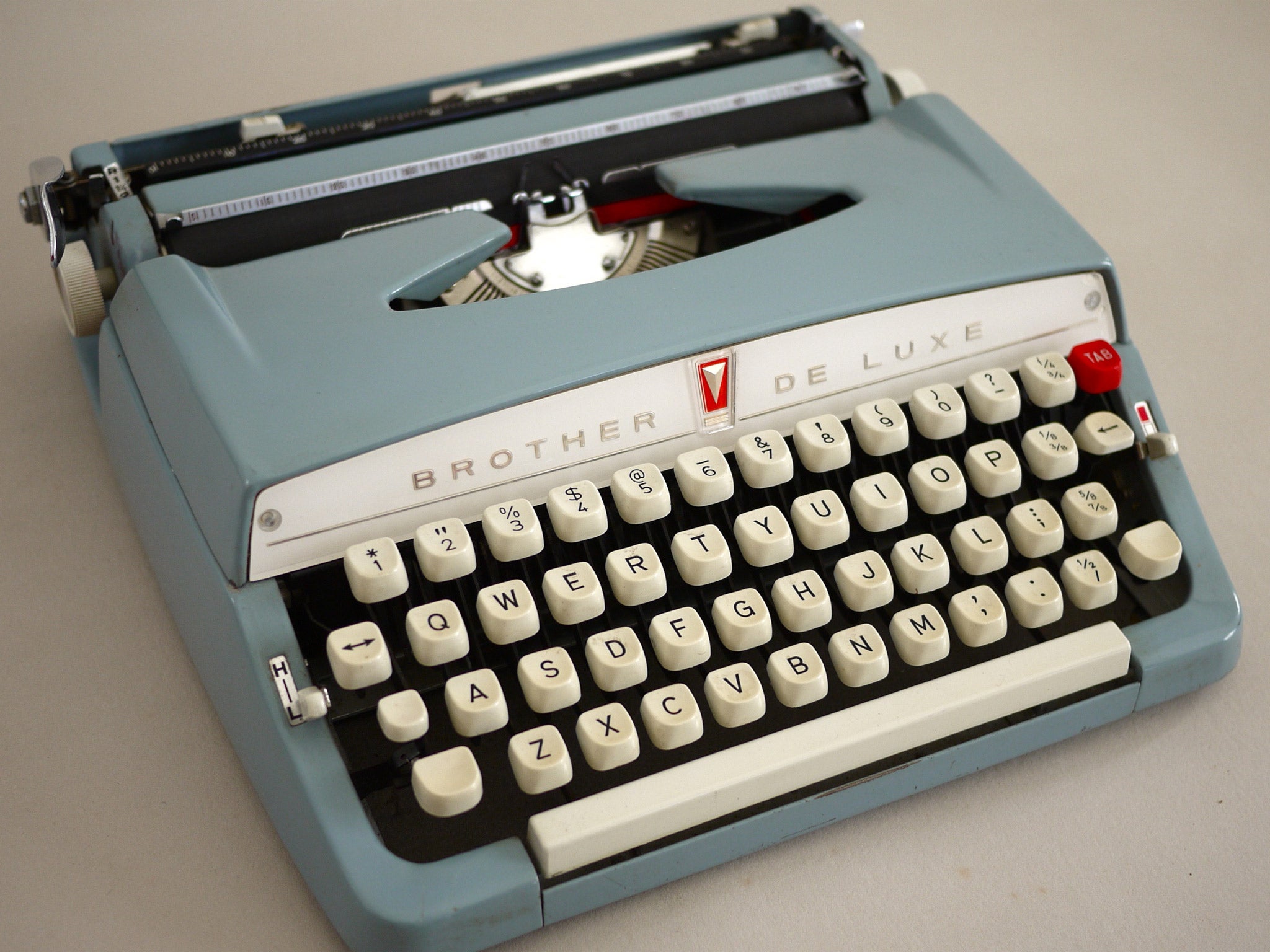Tinker, tailor, typewriter, spy – the old ways work
PLUS: More Beckett, fewer coffee shops for Reading University

The age of mechanical writing came for me in 1974, when my Christmas present was a bright orange Olivetti typewriter. I kept it for years, enjoying all sorts of things about it – the ding at the end of the line, the way they’d saved money on the keyboard by making you write an exclamation mark with an apostrophe, backspace, full stop manoeuvre.
That was fine, but some time in the early 1980s, I came across the electric typewriter that allowed you to view a whole line on a little screen before you pressed print, and it typed it out with a remote, magical process. To be honest, I still think the electric typewriter that can remember 12 words in its electric brain is the most brilliant writerly tool. If you could rely on being able to buy the ribbons, I might think about going back to it from this boring laptop I’m currently writing on.
The Kremlin has made a similar decision. Remarkably, it has apparently just decided to increase the amount of work it produces on paper, and is investing about £10,000 on typewriters. Its logic is to do with security. In a time of WikiLeaks and whistleblowing intelligence contractors, it is all too easy for a disgruntled employee to extract vast amounts of data from a computer and walk out with it on a tiny memory stick, or simply email it to a third party. Information on paper, however, must be copied to be stolen. It is intrinsically much more secure. The alternative to writing very secure information on paper is probably not writing it down at all, and that will present major problems.
Many of the world’s security services, there is good reason to believe, still preserve its most secret material on paper alone. I was once told by someone who would know that MI6’s internal correspondence was overwhelmingly made up of one spy upbraiding another for failing to send him form A3794 in triplicate. Russian directives to the defence minister and Vladimir Putin, the Russian government said, have always been printed on paper.
There is, too, an important point about the archival future of documentation. Paper documents are straightforward to archive and preserve – you just put them in a folder, in a drawer, and then hand them over. Important electronic material is a nightmare to preserve. Means of reading move on rapidly, and an email not 10 years old will probably be unreadable unless special steps are taken to preserve it.
By contrast, Palmerston’s correspondence from the 1850s is still in perfectly good condition, and will go on being readable for the indefinite future. Paper lasts. The expert that said, in response to the Kremlin’s apparent step backwards, that paper documents were at risk of being stolen, photographed or could go up in flames was right. He should have pointed out, however, that these are all exceptional situations. The danger to secure emails – that they be forwarded to the unapproved, copied and quite quickly disappear from the usable record – is not exceptional, but the normal state of affairs.
Paper is secure, safe and pretty well permanent. Its major disadvantage is a slowness of communication, and the undeniable fact that its preservation uses up a colossal and steadily increasing amount of storage space. Palmerston’s government papers are preserved, but God knows how much more space the government papers of Tony Blair would use up. The Kremlin is not proposing to conduct all government business through electric typewriters – £10,000-worth of typewriters is not going to take over a large proportion of government communication. But it has realised, as many of us are slowly realising, that a core part of communication and writing can’t be trusted to electric means. There will always be a place for paper, and print, and the safely locked drawer.
More Beckett, fewer coffee shops
The University of Reading has been somewhat criticised for spending £962,500 on a Beckett manuscript. The manuscript, of Beckett’s novel Murphy, was probably the most important 20th-century manuscript still left in private hands. Now it goes into the university’s important Beckett collection, and is available to scholars.
Nevertheless, some people were slightly outraged that a public institution should be spending money on manuscripts in this way, especially since university budgets are now going to be coming from students paying £9,000 a year. Is this really a good use of their money?
Even to raise this question shows, I think, a complete lack of understanding of what universities are. They are centres of research and thought, and their resources are not just directed towards teaching and giving undergraduates a fun time for three years. The University of Reading has acted in a responsible way and has enhanced national value by acquiring this immensely important and fascinating manuscript for Britain.
By contrast, the University of Exeter, whose employment I very happily left at the end of last year, has just spent £240m on an opulent new café and shopping centre. In the course of this development, the architects and administrators decided without any consultation that the one thing their new development didn’t need any more was a bookshop. The perfectly good Blackwells bookshop was replaced by the usual load of caffeine-delivering franchises, and I discovered I no longer much wanted to work there.
How nice, on the other hand, to find that there are universities that discover that what they most want to do with a million quid they happen to have hanging around is spend it on an important literary manuscript, and keep it in ideal conditions for study. I take my hat off to them.

Join our commenting forum
Join thought-provoking conversations, follow other Independent readers and see their replies